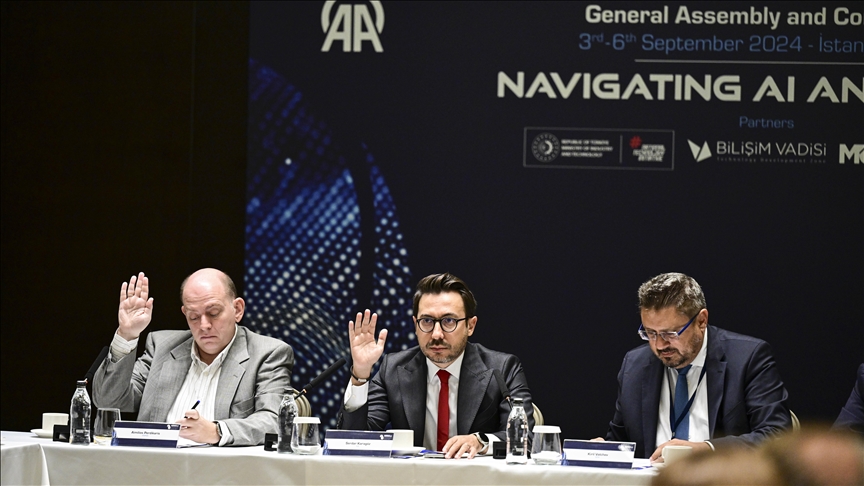Freed Italian Reporter Says US Forces Tried to Kill Her
Trigger-happy American soldiers opened fire Friday, March 4, at the car of the 56-year-old reporter, wounding her and killing an Italian secret service agent who shielded her from the bullets.
Sgrena, who works for the Il Manifesto daily, was released Friday after one-month detention.
She was kidnapped on February 4, outside a Baghdad mosque by an Iraqi group who called on Rome to withdraw its troops from Iraq.
Italy’s La Stampa daily said Sunday that the US had been informed about Sgrena’s impending release.
“And the presence of an American colonel at Baghdad airport along with the Italian officers who were waiting for Sgrena and her liberators, demonstrates that the operation was being conducted in harmony,” it said.
Don’t Want Me Back
The Italian reporter said that she was warned by her kidnappers that the US forces would try to kill her.
“I immediately thought of what my kidnappers had told me. They said they were committed to releasing me, but that I had to be careful ‘because there are Americans who don’t want you to go back’”, she told her newspaper.
“When they told me, I though it superfluous and ideological. In that moment, for me, it almost became the bitterest truth,” she said, recalling US soldiers showering her vehicle with bullets.
The freed reporter also refuted US claims that the car was traveling at high speed.
“Our vehicle was running at normal speed which could not be misunderstood,” she told the Italian news agency, ANSA.
American forces claimed that the vehicle carrying Sgrena was traveling at high speed toward a checkpoint and that soldiers fired warning shots in a failed attempt to get it to stop.
“Well-Treated”
Giving account of her abduction experience, Sgrena said that she was “well-treated” and voluntarily released by her kidnappers.
“They never treated me badly but I wish things had gone better last night,” the exhausted journalist told colleagues who greeted her inside the plane.
“My kidnappers had been telling me that I would be freed,” Sgrena told the Il Manifesto.
“Then at a certain point, everyone came into my room as if to comfort me and joked ‘congratulations,’ they told me, ‘you’re leaving for Rome’. For Rome. They said it just like that.”
“Hearing of my release was the happiest moment as well as the most dangerous,” the released female journalist recalled.
Simona Pari and Simona Torretta, two Italian aid workers freed last September in Iraq, also said they were well-treated by their Iraqi abductors.
Following their release, they stressed that the Iraqi people have every right to resist the US-led occupation forces until liberating their homeland.
Rain of Fire
Sgrena said their car came under a rain of fire from US forces, instantly killing Italian intelligence officer Nicola Calipari.
“The car continued on the road crossing through an under-passage full of water.”
“Nicola Calipari was seated at my side. The driver had spoken twice to the embassy and to Italy that we were on our way to the airport that I knew was saturated with American troops, we were less than a kilometer they told me… …when…I remember there was shooting.
“At that point a rain of fire and bullets pummeled us, silencing for ever the happy voices of a few minutes before. The driver began screaming that we were Italian, ‘We’re Italian! We’re Italian!
“Nicola Calipari fell on top of me to protect me, and immediately, I repeat immediately, I felt his last breath and he died on top of me.”
Italy has 3,000 troops in US-occupied Iraq and the death of the Italian intelligence officer is expected to cast a new shadow over Italian Prime Minister Silvio Berlusconi’s unwavering support for the US.
“The incident could have very serious political consequences,” La Stampa said in a front page editorial, adding that relations between the two governments had “suffered an immediate deterioration”.
The US ambassador to Rome was summoned to the office of Berlusconi to explain the friendly fire incident.
The premier said he expected the US to “leaves no stone unturned to shed light on what happened and on who might be responsible.”
It was the most serious diplomatic incident between the two allies since February 1998 when a US Marine jet cut the lines of a ski lift cable-car in Cavalese (in the Italian Alps); killing 20 people.


